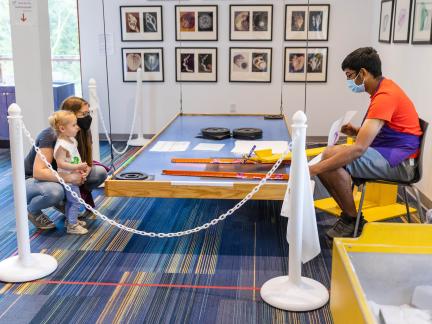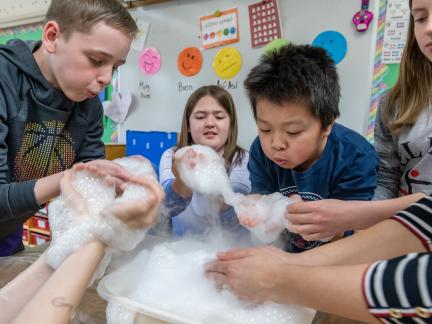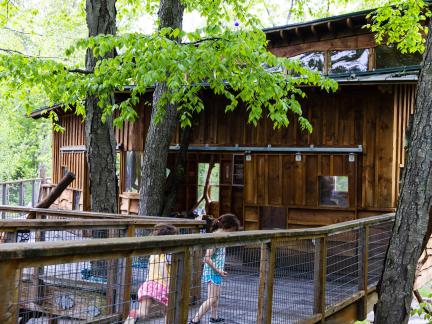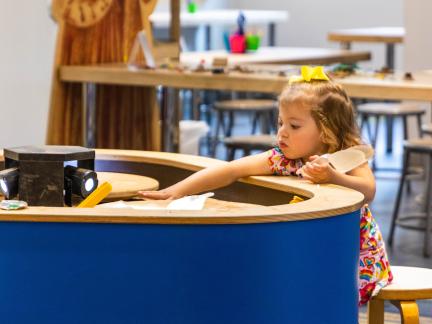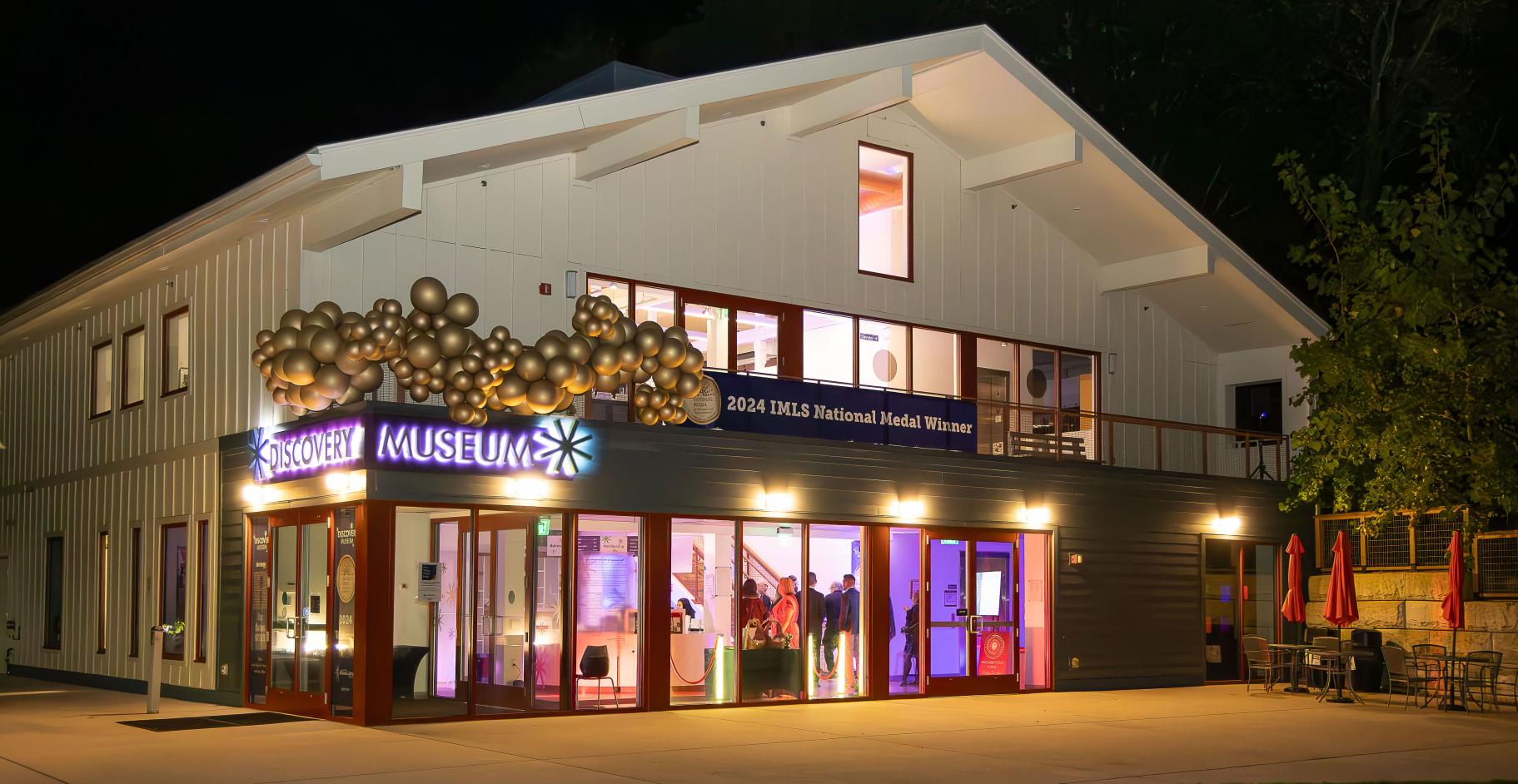Encouraging and inspiring childhood exploration
If you would, pause with me for a moment and cast your mind back to a time in your early childhood when you felt safe and relaxed, when you were having fun doing something you particularly enjoyed. Maybe there was an adult nearby, but nobody was telling you what to do or how to do it. You were completely engrossed, and it felt energizing and “right.”
I was a kid who always had a project. Building a fort, turning my bedroom into a store, making mud pies for pretend customers.
For me, those memories are still meaningful because they are so iconic. To me, that was the best of childhood. Time stretched out and at the end of the day, nobody asked “what did you learn?” Play was a natural destination, targeted by a child’s developing brain and its built-in desire to grow by experiencing and experimenting.
Peter Gray, research professor of psychology and neuroscience at Boston College and a friend of our museum, calls this “independent play.” And as it has become less common in our homes, our neighborhoods, and, if we are lucky enough to have them, our backyards, children have become more stressed, more focused on outcomes over process. We have even made them less certain of whether they have the natural ability to play successfully.
There is no denying that childhood is different now. Our world is so much smaller—we can communicate with anyone, anytime, anywhere—but what children worry about has gotten exponentially bigger. They worry about social media, mass violence, natural disasters, climate change, political polarization. They even have to worry about their parents and caregivers in new ways: In fact, according to Surgeon General Vivek Murthy, 48 percent of parents—nearly half—are saying that most days they feel completely overwhelmed by stress. Forty-one percent of parents, compared to 20% of other adults, say they are so stressed they cannot function. If we think that young kids don’t see and even feel partly responsible for that stress, we are fooling ourselves.
This puts an incredibly fine point on our work at Discovery Museum. What we do is critical, it is urgent, and it is transformative. Let me explain.
In many parts of their lives—school, sports, activities, even playdates, sadly—children have to adapt to their environment, to rhythms that may or may not match their own energies, to timings and transitions that can feel forced, to environments that often require adult behaviors and sensibilities. But at Discovery Museum, our rhythm is children.
First-time visitors are told at the Admissions desk: “Let your child guide you.” Students in our school programs get time to explore materials and ideas at their own pace, with their own hands. Here, we want you to put your hands in the dirt, the words “don’t touch” appear only on our fire alarms, and you do not need language to learn. Our purpose is supporting kids’ natural curiosity and creativity, our exhibits are driven by their interests and ideas. Even our strategic planning process this year was informed by their aspirations for our future!
Discovery Museum has 42 years of expertise in developing and delivering enriching experiences that invite kids to explore their world and let them know, “You can do it! You can ask good questions, find your own answers, and solve the problems that matter to you.” In short, we give them agency and power in a time when so much is way beyond their control. These future adults may become scientists or maybe they’ll be artists, bankers, activists, legislators, community leaders, parents. But if we’ve done our job—by giving kids room to explore the world the way their brains want them to, by reminding caregivers why the process of play is more important than the outcomes, by inviting more moments of wonder, of joy, of discovery into the lives of kids every day—we are supporting something that goes beyond this building, beyond classrooms, beyond Massachusetts.
We are encouraging and inspiring kids who believe they have what it takes to make a difference in this world.
-----------------------------
This is an excerpt from the thoughts I shared with our 200 guests at Discovery Gala, where we celebrated our 2024 IMLS National Medal for Museum Service—our very proud “Gold Medal Moment.” The evening was a wonderful sharing of our accomplishments and ambitious future plans with some of the many community members whose unwavering support makes it all possible.
If you were not able to join us but would like to invest in our work, please use this link to make a donation. Every gift helps us protect and preserve childhood, and our museum. Thank you.
